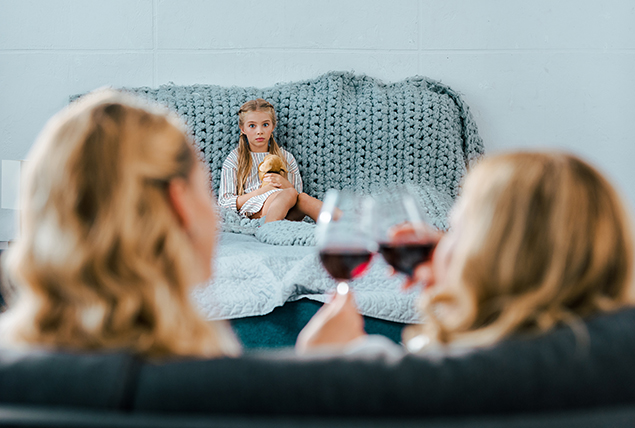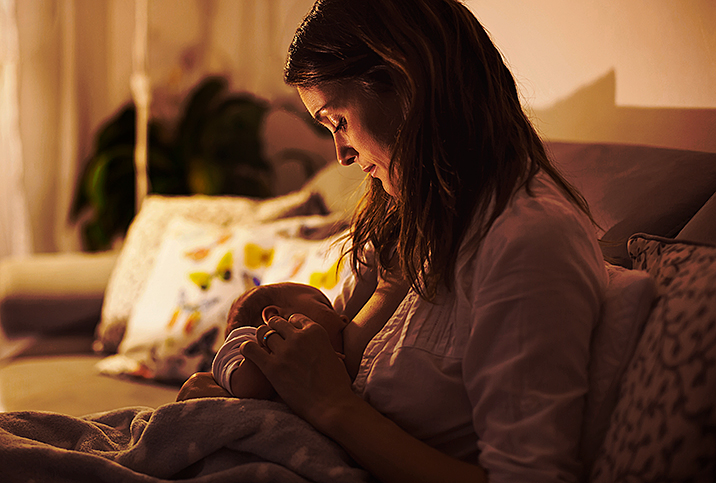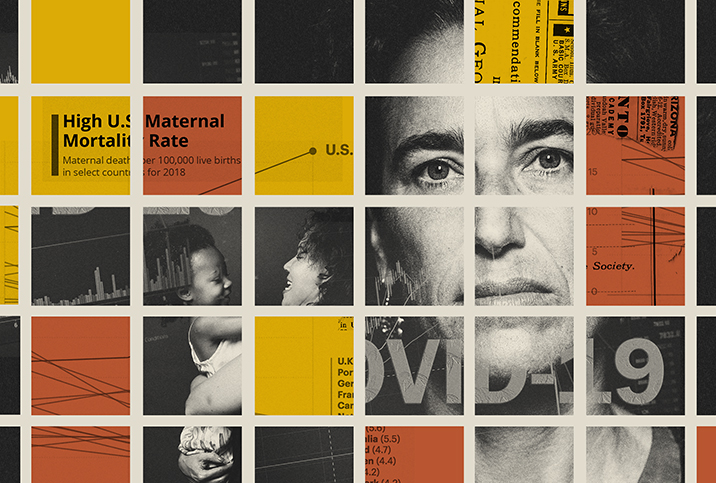Mothers' Alcohol Habits Changed During the Pandemic

Bridget Freisthler, Ph.D., an associate dean of research at Ohio State University College of Social Work, first noticed something was up with parents and their alcohol intake in the early months of the COVID-19 pandemic.
Early signs appeared on social media, where Freisthler observed a growing body of posts joking about alcohol use and parenting. There were memes, along with comments like, "I'm going to need a glass of wine to get me through virtual schooling," Freisthler recalled.
Intrigued by the rising tide of alcohol-themed quips and GIFs, Freisthler—who studies how the situation, social and location characteristics influence parenting behaviors—decided to take a closer look.
The survey
By then, Freisthler and her colleague, Jennifer Price Wolf, had already begun surveying parents about their experience during the COVID-19 stay-at-home order. In addition to questions about stress and the transition to virtual schooling, the parenting survey included a requisite series of questions about alcohol intake.
The researchers surveyed 266 mothers with children between the ages of 2 and 12 in central Ohio.
"The sample that we had were primarily very educated white women, so it's definitely a sample group that is not representative of everybody in Ohio, let alone the country," Freisthler noted.
Freisthler and Wolf surveyed the mothers three separate times: once in the spring of 2020, when COVID first hit the United States, and again in the spring of 2021 and 2022.
The results
Of the mothers surveyed, 77.8 percent reported drinking alcohol. At the beginning of Ohio's stay-at-home order in spring 2020, participants who used alcohol reported consuming it an average of 9.2 days during the previous 28 days.
"Frequency of drinking was definitely elevated in the early days of the pandemic," Freisthler said.
The frequency of drinking dropped to 6.95 days in 2021 and stayed about the same in 2022. In addition, the total drinking volume fell from 2020 to the last two years of the research. However, the average number of drinks per day rose from 1.47 in 2020 to 1.65 in 2021 and held steady at 1.61 in 2022.
This last data point, in particular, is concerning to Freisthler.
"The amount people drink actually started to go up over time and stayed up, even as they drank less frequently, which is not something that we were expecting to see," she emphasized.
"When they do drink, people are drinking more, and that hasn't gone back down to pre-pandemic levels," she said.
The problem
Drinking more on a single occasion puts people at a higher risk for binge drinking, which is four or more drinks for women and five or more for men.
"When it comes to [binge drinking], there are a whole host of problems, personally, interpersonally and health-wise," Freisthler said.
Drinking in higher amounts is particularly problematic for parents, she said.
"When parents drink in higher amounts, they're more likely to use not-so-great parenting," she added.
Freisthler said the drinking parents observed in her study weren't necessarily using aggressive discipline but were more likely to commit what she termed "benign neglect."
"For example, they might be not paying attention to their kids," she said. "While that in and of itself is not necessarily a red flag, it does speak to how when you're drinking, your parenting behaviors change. If you don't account for that or if you're not someone who drinks often, it might change more drastically than you might think."
For parents who want to drink and parent more responsibly, Freisthler stressed the importance of having a "designated parent."
"If you know you're going to be drinking, have an adult who's going to be taking care of kids," she suggested. "Preplan a little bit; make sure you have someone who can help with some of those parenting duties during those time frames, so your kids are taken care of and you can avoid doing something you're going to regret later when it comes to parenting."


















